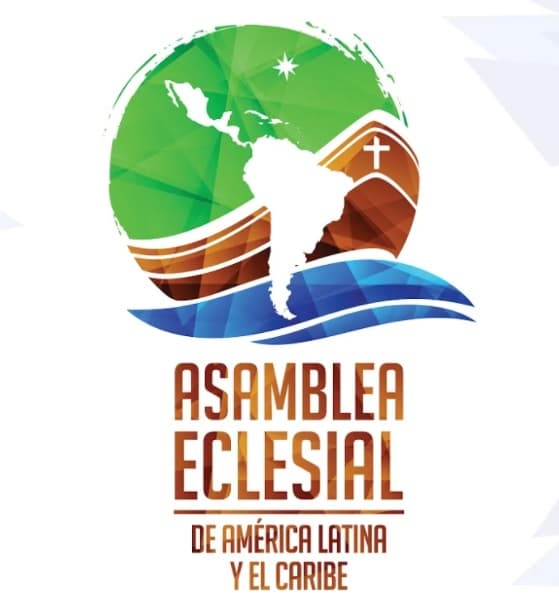ROME – Catholics from Latin America and the Caribbean are invited to take part in an ongoing listening process ahead of a regional Ecclesial Assembly that will take place in Mexico Nov. 21-28.
“The church wants to listen to you,” said Bishop Jorge Eduardo Lozano, Secretary General of the Latin American Episcopal Council (CELAM) in the latest video promoting the ongoing listening process, that will conclude August 30.
The listening process, launched in April, was set to end in July, but has been extended until the end of the month.
Addressed to the faithful of the region, the Argentine-born prelate recalled that this is a time to take part in the ongoing reflection and exchange of opinions on the many ecclesial realities present in Latin America.
Though the number of Mass-going Catholics continues to decrease in the continent, it remains the home to close to 40 percent of the world’s Catholic population. The decrease in the number of faithful – observers have pointed out throughout the year – has several reasons, including secularization, clericalism, clerical sexual abuse and the close ties between Church officials and governments perceived to be corrupt.
The Ecclesial Assembly is CELAM’s response to Pope Francis’s call for a more synodal Church, and follows similar initiatives being carried out in Germany, Australia, and soon in Italy, where the Argentine pontiff has asked the local bishops to launch such an effort.
When it comes to Latin America, the Ecclesial Assembly could potentially impact some 377 million Catholics from the 46 countries that make up CELAM. The assembly seeks to discern as a continent a joint pastoral plan to respond to the crises affecting the region.
In May 2019, the new CELAM presidency was asked to send a request to Pope Francis to summon the bishops to a new general conference of the episcopate. The last time such a meeting was held was in 2007 in Aparecida, Brazil.
This type of assembly is unique to Latin America, and no other continental conference of Catholic bishops has done anything similar.
The 2007 assembly was attended by around 200 bishops who met for 20 days, sharing concerns and drawing up a document that is still guiding the Church in Latin America. Yet when the CELAM leadership brought the initiative to the pope, he argued that there are many things from Aparecida that were never applied, and advised them to hold a meeting of the People of God instead, to strengthen the guidelines that were set out in 2007.
Therefore, the Ecclesial Assembly involves not only bishops, but also priests, religious, men and women religious, deacons, and laypeople.
The “Listening Process” was launched in April, and each local church has put together its own plan, mostly to carried out through online platforms due to COVID-19 restrictions.
In the video published on Saturday, Lozano said that the objective of the listening process is for believers to be challenged from their faith to participate as active members of the Church, explaining that in order to build together it is necessary to observe reality and joyfully assume the invitation of Aparecida to be missionary disciples.
“The Church wants to listen to the voice of all men and women who have through the water of the baptism become members of this beautiful family to which God calls us,” Lozano said. “In this time, we want to listen to you, we want to know what are your worries, your desires, your expectations, your sufferings, as members of the Christian community.”
The Ecclesial Assembly is also an attempt from the continental Church to prepare for to major anniversaries to be marked in 2031 and 2033. The first date makes reference to the Jubilee Year of Our Lady of Guadalupe on the 500th anniversary of her apparitions in Mexico, and the second to the 2,000 anniversary of Christ’s resurrection.
After the listening process, thousands of representatives of the Latin American Church will – if the pandemic allows – gather in Mexico City in November, to further discuss the topics presented in the preparatory document, available online in Spanish and Portuguese.
Those who want to take part in the listening process can do so through a series of tools designed to facilitate participation despite the restrictions in place due to the pandemic. These include an online platform and several social media accounts in Spanish, Portuguese, French and English, the official languages spoken in the region.
In addition to a questionnaire, Catholics can take part in “thematic forums – spaces for virtual interaction among participants from different countries. The forums include synodality, youth, integral ecology, Francis’s economy, the global educational pact, the COVID-19 pandemic, and African American and Caribbean ministry.
Follow Inés San Martín on Twitter: @inesanma












